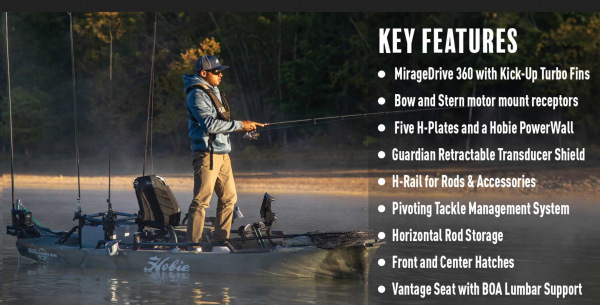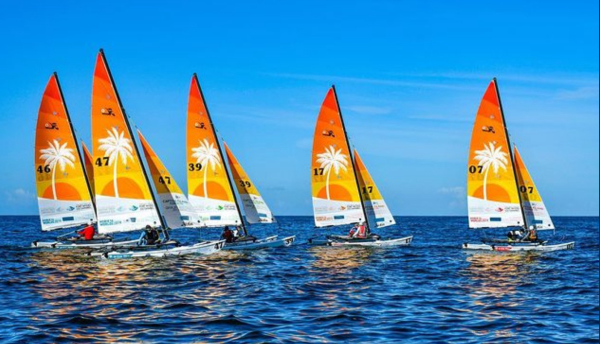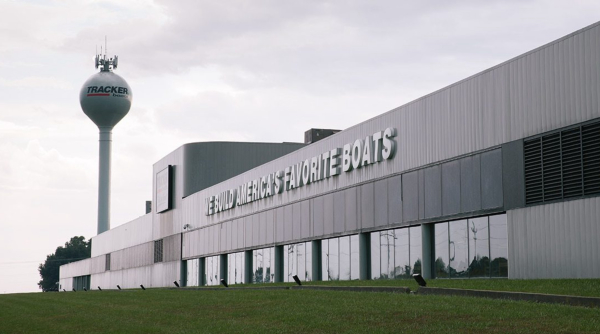
When Bass Pro Shops founder Johnny Morris announced last week that Hobie, the California-born brand synonymous with pedal-drive kayaks and small sailboats--currently built in Mexico—is now a White River Marine property and will soon be built in Missouri, it felt like more than just a corporate acquisition. It was a cultural shift — a symbolic return of an American watersports icon to American soil.
Hobie has long been more than a name stamped on a hull. For decades, its kayaks and sailboats have carried weekend paddlers, anglers, and lake-cruising families. Thousands have learned to sail on Hobie’s little 16’ sailboats, and over the last decade the company’s fishing kayaks have come to be one of the major players in that booming field.
Bass Pro, with its massive retail reach and huge manufacturing arm in White River Marine Group, likely saw more than a product line. It saw a chance to tie Hobie’s heritage directly to the heart of American outdoor recreation, producing the boats in Lebanon, Missouri, within shouting distance of Bass Pro’s Springfield headquarters.
The decision has practical roots. Manufacturing overseas, Hobie faced the same headaches plaguing much of the industry: shipping container delays, rising labor costs in Mexico and Asia, tariff issues blooming unpredictably this year and a supply chain stretched thin by global disruptions.
Bringing production home means Bass Pro can keep closer tabs on quality, shorten the time between factory floor and dealer showroom, and eliminate the risks of geopolitical tremors that can stop a product cold at the border. The cost of American labor remains higher, but advances in automation and the deep bench of skilled workers around the Ozarks help narrow the gap. In many ways, Bass Pro is betting that efficiency and loyalty to the brand can outweigh the higher wage bills.
There’s also a marketing truth here: “Made in USA” sells, especially in the outdoor world. A Hobie kayak is more than a piece of molded polyethylene; it’s a vessel of identity for the angler or paddler who buys it. For many customers, knowing the boat was built in the same country where it will be paddled adds authenticity and pride. Bass Pro has long leaned into those sentiments with its own White River brands, and Hobie fits the narrative perfectly.

Not only that, but BPS has a huge retail arm in its hundreds of Outdoor World outlets, which are already selling ‘yaks as well as larger fishing boats and pontoon boats by the thousands. Adding a full Hobie line to the store offerings will provide a sure conduit to consumers.
State and local governments are playing their part as well. Missouri leaders welcomed the move with open arms, promising new jobs and positioning Lebanon as a hub for outdoor manufacturing. That kind of local partnership makes the transition easier, while also providing tax and training incentives that sweeten the math for Bass Pro.
Brunswick Also Closing Mexico Operations
Hobie isn’t the only one making this move. Just weeks ago, Brunswick Corporation announced it was closing its fiberglass plant in Reynosa, Mexico, and shifting production back to Tennessee and Florida. Chaparral Boats recently expanded its Georgia plant, choosing to grow in U.S. soil rather than abroad. The industry as a whole is slowly recalibrating, acknowledging that the old calculus — cheaper labor overseas equals cheaper boats at home — no longer adds up when you factor in shipping costs, tariffs, delays, and the occasional political curveball. And providing more good American jobs just seems like the smart thing to do so long as it makes sense economically.

There are challenges ahead. Ramping up a new factory line requires serious investment, from new molds and machines to training a workforce that may never have bolted together a pedal-drive kayak before. Consumers could see prices tick upward as companies absorb higher production costs.
But for Bass Pro and Hobie, the long-term play is clear: tighter control of the product, faster delivery to the customer, the undeniable marketing power of the American-made stamp and more jobs for American workers.
— Frank Sargeant
Frankmako1@gmail.com